Neurodivergent individuals—including those with autism, ADHD, learning disabilities and other neurological differences—are at increased risk of mental health challenges and suicide. This page brings together UK-based organisations that offer specialist support, resources, and safe spaces for those navigating mental health struggles while living with neurodiversity. Whether you’re looking for research-based guidance, counselling, or someone to talk to, these charities are here to help.
🧩 Autistica
What they do: Autistica is the UK’s leading autism research charity, focusing on understanding and preventing early death in autistic people, including suicide. They fund studies to develop tailored suicide prevention strategies for autistic individuals.
Contact: Visit autistica.org.uk for resources and support.Autistica
📚 ADHD Foundation
What they do: The ADHD Foundation offers integrated health and education services for individuals with ADHD and related neurodiverse conditions. They provide training, resources, and support for managing mental health challenges.
Contact: Call 0151 541 9020 or visit adhdfoundation.org.uk.ADHD Foundation
🧠 The Brain Charity
What they do: The Brain Charity supports people with neurological conditions, including neurodiverse individuals, offering counselling, legal advice, and social activities to improve mental wellbeing.
Contact: Call 0151 298 2999 or visit thebraincharity.org.uk.The Brain Charity
📞 Samaritans
What they do: Samaritans provides 24/7 emotional support to anyone in distress, including neurodivergent individuals, through confidential listening services.
Contact: Call 116 123 (free, 24/7) or visit samaritans.org
🌐 PAPYRUS Prevention of Young Suicide
What they do: PAPYRUS focuses on preventing suicide among young people, offering support and resources tailored to neurodivergent youth.
Contact: Call HOPELINEUK at 0800 068 4141 or visit papyrus-uk.org
🧩 Action for Neurodiversity
What they do: Action for Neurodiversity provides counselling and support services for neurodivergent individuals, focusing on mental health and wellbeing.
Contact: Visit actionforneurodiversity.org
🧠 Rethink Mental Illness
What they do: Rethink Mental Illness offers support and information for people affected by mental illness, including neurodivergent individuals, through services like supported housing and advocacy.
Contact: Visit rethink.org
🌈 The Mix
What they do: The Mix provides mental health support for young people under 25, including neurodivergent individuals, through online resources, helplines, and counselling.
Contact: Call 0808 808 4994 or visit themix.org.uk
🧠 Mencap
What they do: Mencap supports people with learning disabilities, offering services that include mental health support, advocacy, and community engagement.
Contact: Visit mencap.org.uk
🌱 Grassroots Suicide Prevention – Neurodiversity Suicide Prevention Hub
What they do:
Grassroots’ Neurodiversity Suicide Prevention Hub is a digital space dedicated to providing tools, stories, and guidance for neurodivergent individuals and those who support them. It includes real-life experiences, suicide prevention strategies, and signposting to specialist services—all developed with and for the neurodivergent community.
Contact:
🌐 Visit: prevent-suicide.org.uk/neurodiversity
🤝 Support After Suicide – Supporting People Bereaved by Suicide Who Are Neurodivergent
What they do:
Support After Suicide offers guidance on helping neurodivergent individuals who are bereaved by suicide. Their guide includes insight into how grief may present differently in neurodivergent people and how to adapt communication and support approaches for individuals with autism, ADHD, or learning disabilities.
Contact:
🌐 Read the guide and access further help: supportaftersuicide.org.uk
🧠 NSPA – How to Support Neurodivergent Children and Young People at Risk of Suicide or Self-Harm
What they do:
The National Suicide Prevention Alliance (NSPA) brings together partners and experts to reduce suicide in the UK. Their guidance specifically for professionals, carers and educators offers practical advice on recognising risk factors and providing neurodivergent-affirming care for young people experiencing suicidal thoughts or self-harm.
Contact:
🌐 Explore their resources: nspa.org.uk

